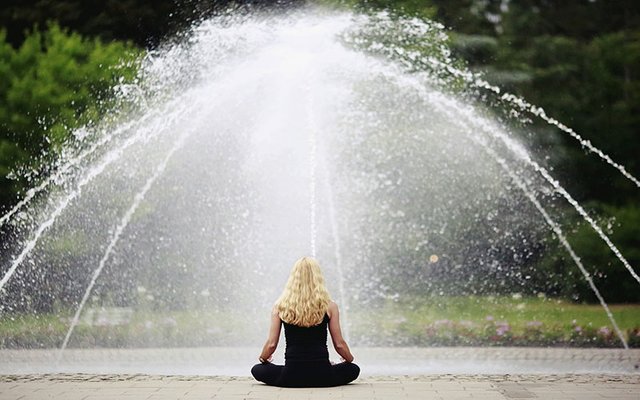How To Become More Mindful In Your Everyday Life
Being present can be tough, even for someone like me who has committed to cultivating positivity and mindfulness. It's during challenging times that mindfulness becomes particularly crucial, yet those are the moments when it feels hardest to stay grounded. Mindfulness is important because it fosters a greater awareness of the present moment, helping individuals to reduce stress and enhance emotional regulation.

By practicing mindfulness, people can cultivate a deeper understanding of their thoughts and feelings, which can lead to improved mental clarity and focus. This heightened awareness not only promotes relaxation but also encourages more thoughtful responses to life's challenges, ultimately contributing to better overall well-being and resilience.
In a fast-paced world filled with distractions, mindfulness serves as a powerful tool for enhancing self-awareness and cultivating a sense of peace. There is no shortage of tips and tricks for being more mindful, but I’ve rounded up my six favorites that may help you control your mind easily.
1. Engage in Mindful Creativity
Creativity is one of the best ways to practice mindfulness, but it can sometimes be difficult to know how to get started (especially if you don’t consider yourself a creative type). For me, creativity is the simplest doorway to mindfulness. When I’m creating, I often enter a “flow” state, a place where I’m so immersed in the present that time seems to disappear. Creativity can be a powerful way to ground yourself in the now.
To cultivate creativity in your life, start by embracing curiosity and exploring new experiences. Set aside time for activities that inspire you, whether it’s reading diverse genres, trying out new hobbies, or engaging in brainstorming sessions. Surround yourself with creative people and environments that encourage free thinking.
2. Avoid Over-Scheduling Your Time
The slower you approach tasks, the easier it becomes to be present in the moment. If your schedule is packed to the brim, however, it can be challenging to take your time. Whenever possible, aim to keep your calendar flexible and allow for extra time to complete your tasks. By resisting the urge to rush, you create space to slow down, leading us to the next point…
3. Appreciate Life’s Little Delights
When you take things at a slower pace, it becomes easier to notice the little wonders around you. For example, driving slowly lets you see autumn leaves drifting down from the trees. No matter your speed, make an effort to look around and appreciate the small details. Consider starting a gratitude journal; while it may seem cliché, it can significantly enhance your mindfulness.

4. Break Out of Your Usual Routine
When life becomes a series of repetitive motions, it’s easy to slip into autopilot, where mindfulness is often lost. Try something new: take a different route to work or rearrange your daily tasks. Even a simple change, like trying a new meal, can help you see the world from a fresh perspective, making it easier to stay aware and fully engaged in each moment.
5. Tune Into What You’re Feeling In Your Body
Your body is a direct pathway to the present. By tuning into its sensations, you bring yourself back to the here and now. If you’re struggling to stay mindful, take a moment to notice how your body feels—its warmth, tension, or lightness. The beauty of this approach is that your body is always with you, ready to act as a mindfulness anchor wherever you are.
6. Reconnect with Nature (and Leave Your Phone Behind!)
It may sound like a mindfulness cliché, but there’s a reason nature is so often recommended. Whether you’re in a secluded forest or a city park, being surrounded by nature can deeply ground you in the present. Next time you feel disconnected, try putting your phone away and simply step outside. Even a brief moment in nature can restore your sense of presence.

These are just a few ways to invite mindfulness into your life. Whether it’s through creativity or one of these other suggestions, I hope these ideas help you find ways to the present moment because, truly, it’s all that we have.
If none of these resonate, explore the mindfulness section of the blog for more ideas. Staying present is rarely effortless, but it’s a practice worth pursuing—small steps can lead to profound rewards.